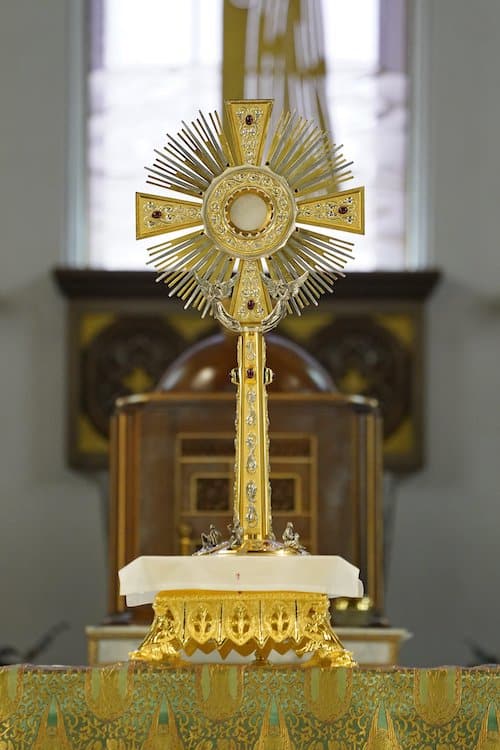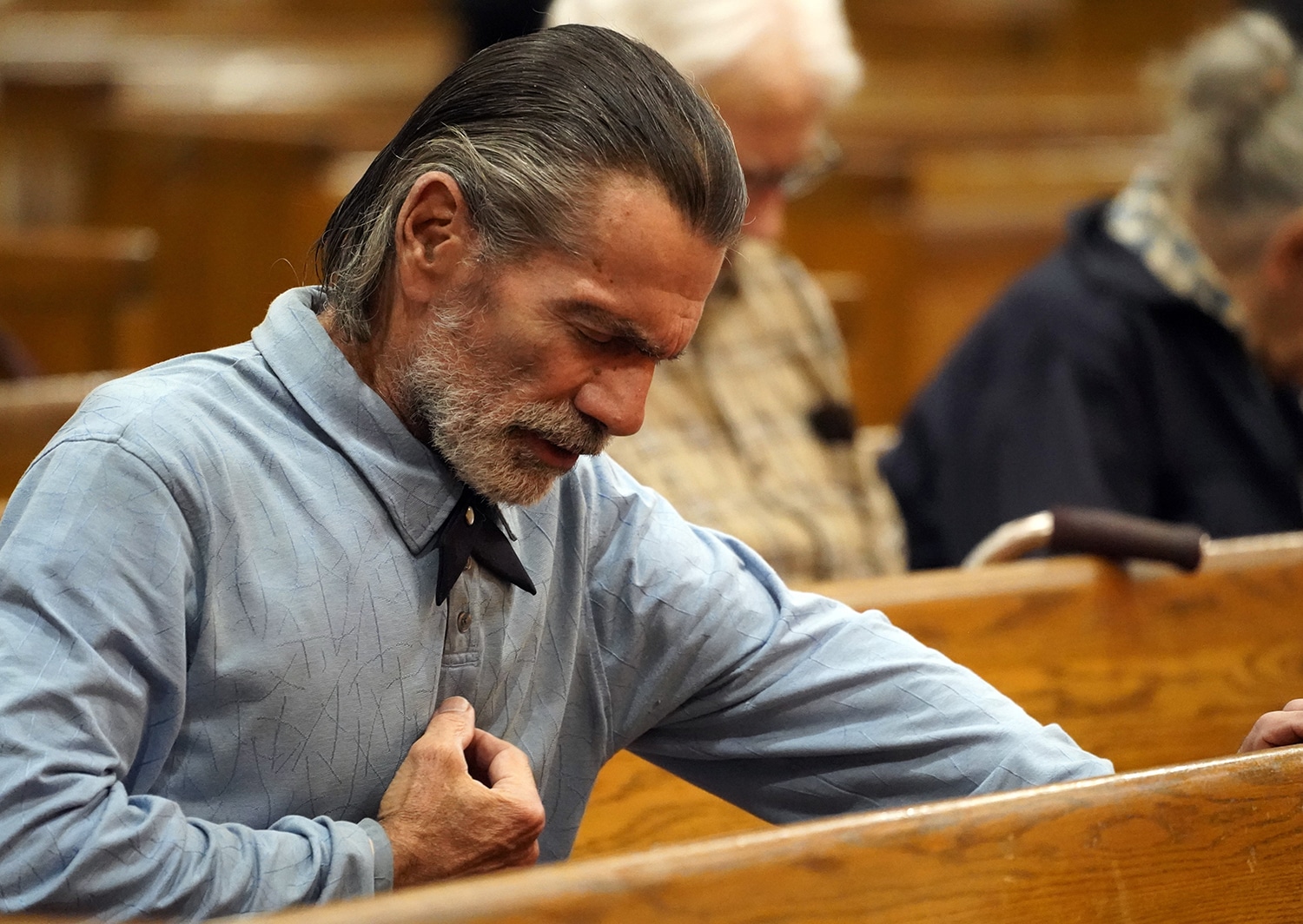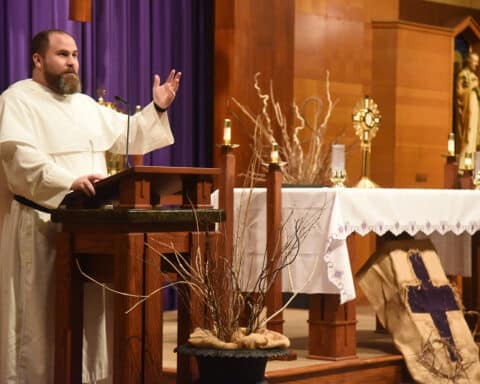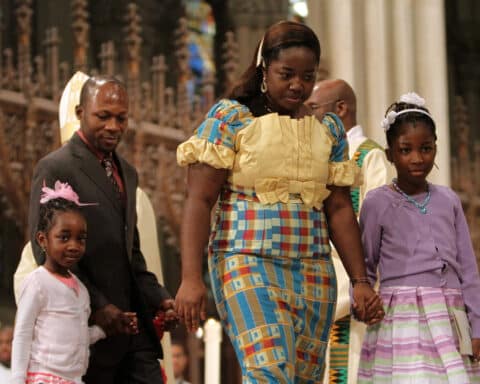“Human beings possess a great and readily observable weakness for which they need much support and comfort,” says the Italian priest philosopher Luigi Giussani. “They have an endemic fear engendered by a temptation to reduce the total image of their lives to what can be visibly and materially experienced.”
How we need comfort! We need the constant reassurance of our friends. We need accolades and attaboys at work. We need family members to check in and tell us they love us.
Part of this is simply the human condition. As Father Giussani says, we are plagued by an “endemic fear.” The most common expression of this fear prompts us to indulge in material consolations. A Netflix binge. A few drinks. A Christmas cookie … or three.
A comfort emergency
But we all know those aren’t real comforts. Often we even know it as we seek them. Eggnog won’t soothe the existential questions that haunt us. So we remain dissatisfied. We saunter on waging our tired campaigns of half-hearted rebellion. We have another cookie.
We won’t let our hearts hear the deeper words of comfort we need. As a society, we won’t let ourselves be truly consoled. And it’s only getting colder and darker, metaphorically and in reality.
Which is why we Christians find ourselves facing a comfort emergency. We must learn to let ourselves be consoled by our God, or we will never begin to understand what it means to meet “comfort and joy.” Consolation fills the valleys, making the crooked ways of our hearts straight so that love can enter in.
Advent is about learning the consolation God offers. Isaiah the prophet is told, “Comfort, give comfort to my people, says your God” (Is 40:1). The prophet is supposed to herald the greatest consolation of all: God himself.
We have access to that consoling love of God. The Eucharist is the actual encounter with consolation if we only permit ourselves to be consoled. So what holds us back? What keeps us from embracing the comfort we need?

Turning to the Eucharist
Most people won’t run to the Eucharist because they’re afraid to trust. Everyone is afraid of feeling foolish or being snookered. We’ve all clicked the silly ads that don’t deliver. It’s how we’ve been trained to think. A cookie may look nice, but the sorrow that comes when it turns out to be stale shores up our doubt.
And to all this, in Advent, the prophet simply says, “Like a shepherd he feeds his flock; / in his arms he gathers the lambs, / carrying them in his bosom, / and leading the ewes with care” (Is 40:11). He will comfort us. He will not betray us. He will be enough for us.
To console someone effectively, we have to be with them. Often we don’t even have to say anything. We just have to be with our friends and loved ones. The presence of another, the presence of one we love draws us out of our suspicion. Presence is the answer to uncertainty.
In the Eucharist, God deigns to be with us. And he doesn’t leave. He doesn’t turn his back. He’s never tired of listening. All he offers is comfort. But that comfort can’t be visibly or materially experienced. So it takes courage. And commitment.
We must go to be with him. Over time, his Eucharistic love will wash away our skepticism. When we are with him, he will begin to speak. The first words we’ll hear will be words of comfort and consolation. And slowly, those first gentle words will give way to a cacophony of joy.





